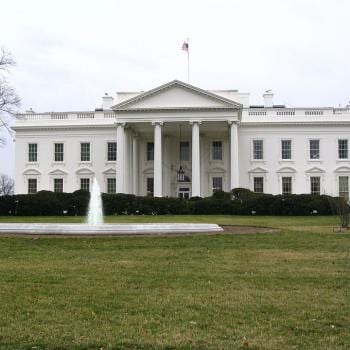Yesterday, I wondered if there could be a truce between pro-life Catholics and pro-choice Catholics on the abortion issue, on the grounds that we share the common goal of minimizing the abortion rate, even though we have fundamentally different and irreconcilable approaches to the underlying moral question. In response, many criticized my post on the grounds that it was “selling out” and asked if I would countenance a similar truce on issues like torture or social justice.
Before I get to this, I want to talk about a new WHO-Guttmacher study on abortion in the world, and the questions raised by Eduardo Penalver over at Mirror of Justice. The study basically concludes that abortion rates are similar in countries where it is legal and where it is not, but that women’s health is endangered in countries where abortions took place below the radar. This is why it is crucial to make a distinction between the morality of abortion and its legal status. For me, being pro-life means wanting to reduce abortion rates to zero (or as close to zero as is practically possible), not to push the problem into dark alleys or neighboring jurisdictions. Sometimes I feel that people focus too much on the underlying legality, and equate any attempt to discuss legality with a defense of the underlying act itself. Eduardo raises the same question from the perspective of Catholic social teaching.
It is worth repeating that law, according to Aquinas, is “an ordinance of reason for the common good, made by him who has care of the community”. Since the preservation of life is fundamental, the common good should be geared toward the protection of life, including the life of the unborn. Ordinarily, the force of coercive law would apply. But assume for a moment that the law makes no difference whatsoever. Is it still true that this particular law is an “ordinance of reason for the common good”? Should the common good not be focused on protecting life more broadly, rather than embracing the law as an end in itself?
On the abortion issue, there is a fundamental difference between law and morality. As Catholics, the taking of an unborn life is no less grave than murder. And yet abortion was never treated on par with murder when it came to penal sanctions, in any jurisdiction when it was or is illegal (there may be some minor exceptions to this general stylized fact). Why? Because of evident practical, and opposed to moral, differences. Let’s assume for a minute that the study is true, and that making abortion illegal will have zero effect on its incidence. In such a circumstance, it would make sense from the point of view of practical reason to focus on reducing abortion outside the legal framework. This is in no way a capitulation to those who believe abortion is a right, it is merely an understanding of the limits of human action.
In such a case, what purpose does law serve? Let’s look at the four purposes of punishment in Catholic teaching: defense against the criminal, deterrence, rehabilitation, and retribution. For sure, if you lock up an abortion provider, then you are limiting the harm this person can do, but another may spring up in his place– this is what the WHO-Guttmacher study seems to imply. And if you punish the woman instead of the provider, then you are only defending society if you think the woman is going to terminate another pregnancy in the future. Making abortion illegal seems not to deter at all. I also do not see any role for rehabilitation in a world where abortion is widely accepted. All that is left is retributive justice, imposing on the offender an adequate punishment (the deprivation of some good) for some crime against justice, public peace, or public morality. Now, we can have a debate over the legitimate role of redistribution in the penal system, but I would argue that it is subservient to the other goals (indeed, Pope John Paul took retribution off the table entirely where the death penalty is concerned). But if we agree that making abortion illegal does not accomplish much, are we hanging everything on retribution alone, especially since we are not adequately protecting the life of the unborn? This is problematic, as it moves away from an approach to the law based on the common good, to one based on punishing vice as an end in itself (and that is more Calvinist than Catholic).
Everything I have said so far assumes that the Guttmacher-WHO study is true. Of course, a general statistical result does not hold in every conceivable circumstance. It is possible to argue that banning abortion in the US will indeed lead to a dramatic reduction in its incidence, even if it does not eliminate it completely. It is more difficult to argue that overturning Roe vs. Wade will have a similar effect, as abortion switches to the state level. I’ve always thought that the current eggs-in-one-basket approach of the pro-life movement to Roe is misguided, as so few have thought about the implications for the life of the unborn in a post-Roe world. But still, the argument in this post is based on the supposition that the results of this study are true, and they might not be. Consider it then a conditional argument.
One final thought: I must repeat that none of this entails compromising with any moral principles. It is a reflection of the limited ability of the law to curb a great evil. This seems quite specific to abortion. Issues like torture and the death penalty are matters of public policy, not private choices. The government is the acting moral agent. Either the government tortures or it doesn’t. Either the government executes criminals or it doesn’t. Nobody can seriously argue that the commission of torture by private individuals is negatively correlated with the legality of torture as a matter of public policy. We need to find an example that involves not what the government does directly, but what it condones through the legal process.
It is hard to find a modern example, which is precisely why the abortion issue is so unique. But if we look to the past, I think we can find some hypotheticals. Take the issue of dueling, such a part of European culture at one point. Killing somebody in a duel is a grave evil, and ideally should be outlawed. But what if there is no chance that the public authorities could end such a popular activity? Might it not be licit to allow it under strict circumstances, so as not to drive it underground and make it more dangerous? It is the same distinction between law and morality that underpins the idea of decriminalizing drugs and prostitution– it is just that people (understandably) feel more queasy about a government giving tacit approval to the taking of innocent life. But the law must serve the common good as best it can in different societies and circumstances. Nor is this an exercise in consequentialism, in the sense condemned by Veritatis Splendour: it is not a matter of doing evil for the greater good, but rather of lessening the negative consequences of an undesirable situation.















